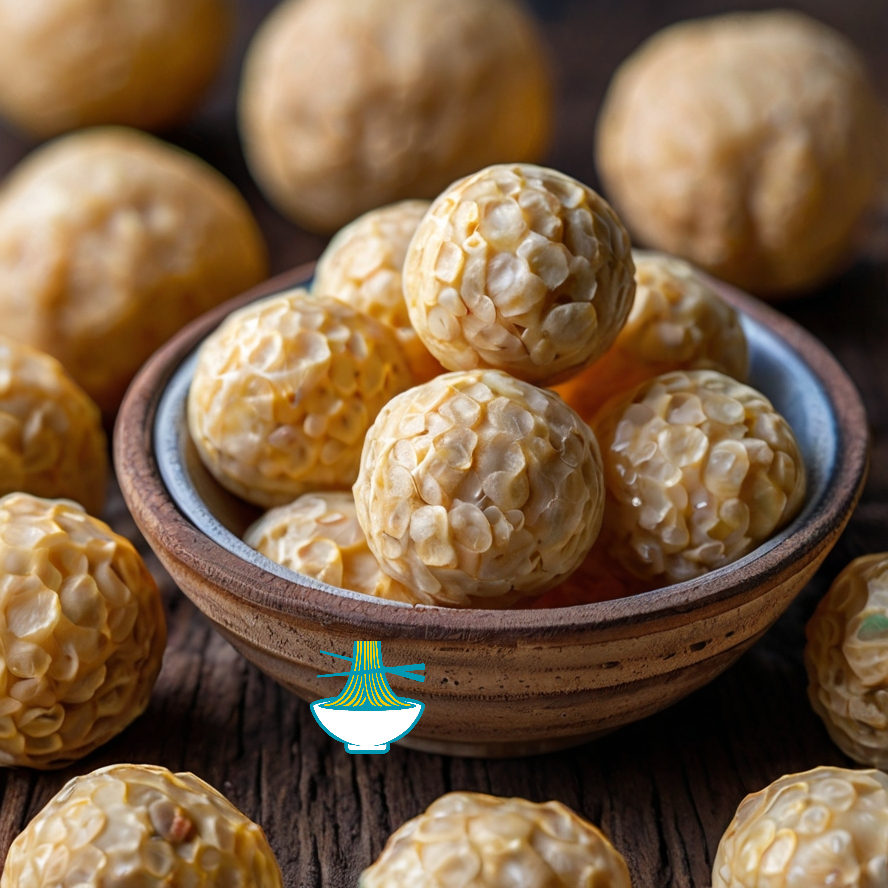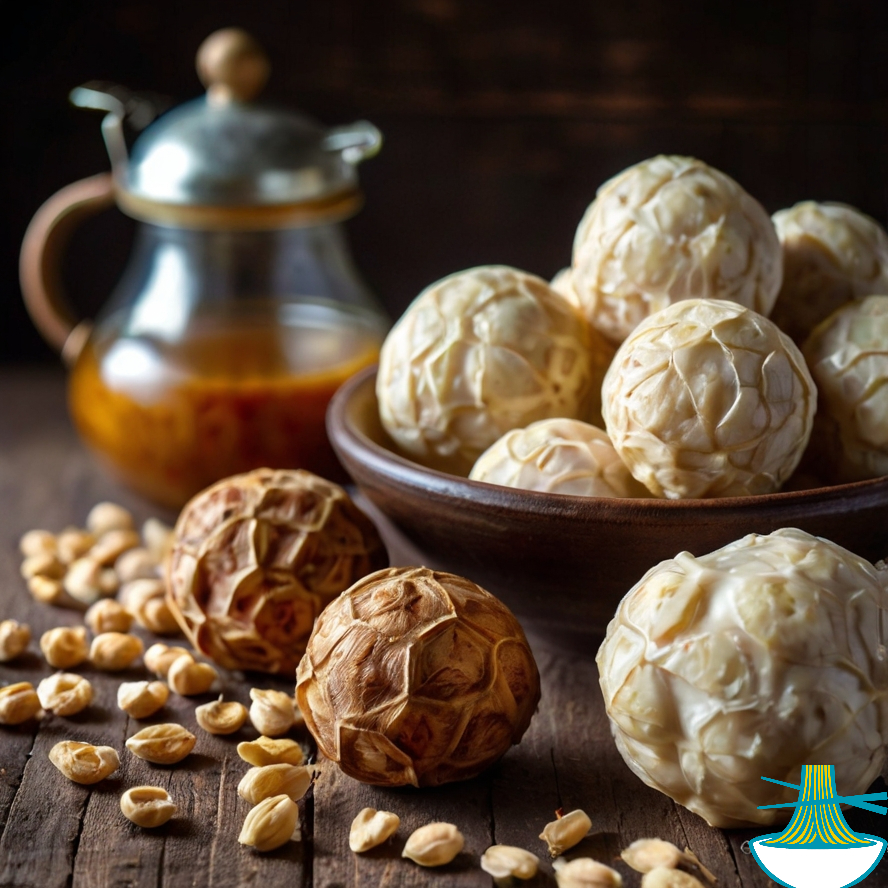Discover how to make Kurut, traditional dried balls of fermented milk popular in Central Asian cuisine. Perfect as a snack or ingredient in soups, this easy-to-follow recipe will guide you through the steps to create these savory, tangy treats at home. Learn the techniques for fermentation and drying to achieve the authentic flavor and texture of Kurut.
Ingredients:
- 2 liters of milk (preferably whole milk)
- 1/4 cup plain yogurt (with live cultures)
- Salt to taste
Instructions:
Prepare the Milk:
- Pour the milk into a large pot and heat it over medium heat until it reaches just below boiling point (about 90°C or 194°F). Stir occasionally to prevent it from scorching.
Add Yogurt:
- Once the milk is heated, remove it from the heat and let it cool down to around 43°C (110°F). Add the plain yogurt and stir well to combine. This will introduce the live cultures needed for fermentation.
Ferment the Milk:
- Cover the pot with a clean cloth or lid and place it in a warm, draft-free area. Allow it to ferment for 6-8 hours, or until the milk has thickened into a yogurt-like consistency.
Drain the Yogurt:
- After fermentation, line a fine mesh strainer with cheesecloth or a clean kitchen towel. Pour the yogurt into the strainer and let it drain for 1-2 hours to remove excess whey. The thicker the yogurt, the better for making Kurut.
Form the Kurut Balls:
- Once drained, transfer the thickened yogurt into a bowl. Mix in salt to taste. Take small portions of the yogurt mixture and shape them into small balls (about 1 inch in diameter). Place the balls on a tray lined with parchment paper.
Dry the Kurut:
- Allow the balls to air-dry in a well-ventilated, dry area for about 1-2 weeks. Turn them occasionally to ensure they dry evenly. The Kurut should become firm and dry on the outside.
Store and Use:
- Store the dried Kurut balls in an airtight container. They can be enjoyed as a snack or used as a tangy addition to soups and stews.
Enjoy making and savoring this traditional Central Asian treat!
Nutritional Values:
Milk:
- Calories: 150
- Protein: 8 grams
- Carbohydrates: 12 grams
- Fat: 8 grams
- Calcium: 300 mg (about 30% of the daily value)
Benefits:
- Calcium: Essential for bone health and strength.
- Protein: Supports muscle growth and repair.
- Vitamins: Provides vitamins B2 (riboflavin) and B12, important for energy production and red blood cell formation.
- Phosphorus: Works with calcium to maintain healthy bones and teeth.
Plain Yogurt (with live cultures):
- Calories: 150
- Protein: 8-10 grams
- Carbohydrates: 12-15 grams
- Fat: 4-5 grams
- Calcium: 250-300 mg
Benefits:
- Probiotics: Live cultures promote a healthy gut microbiome, improve digestion, and boost the immune system.
- Protein: Helps build and repair tissues.
- Calcium: Supports bone health.
- B Vitamins: Provides B12 and riboflavin for energy and red blood cell health.
Salt:
- Sodium: 2,300 mg (100% of daily value)
Benefits:
- Electrolyte Balance: Helps maintain fluid balance and supports nerve function and muscle contractions. However, it should be used in moderation to avoid health issues like hypertension.
Kurut is not only nutritious but also a versatile ingredient that adds flavor and tanginess to various dishes.


Comments